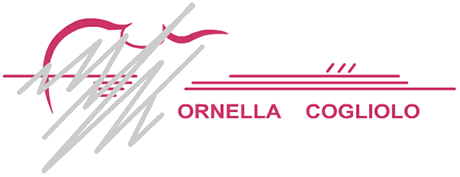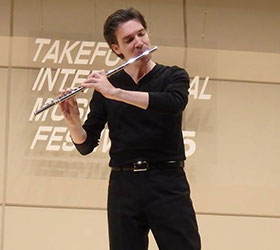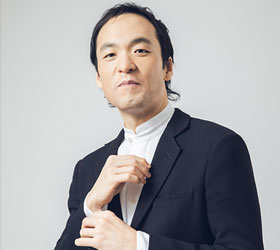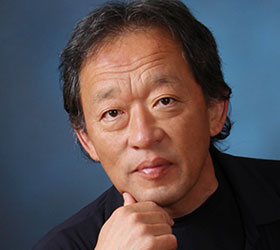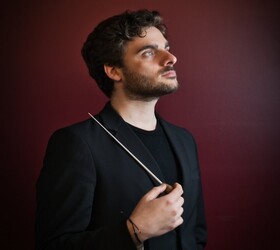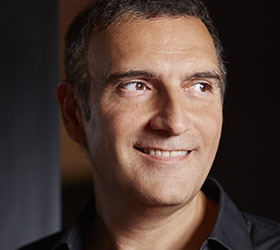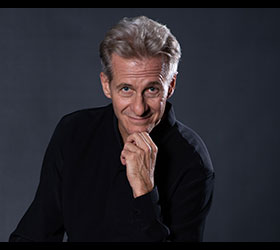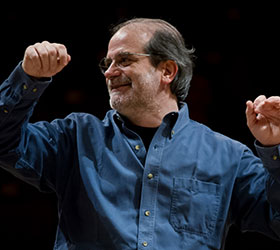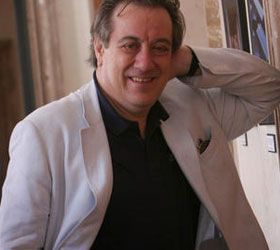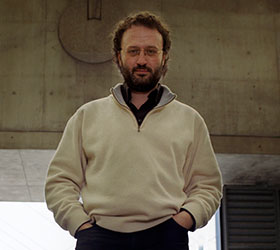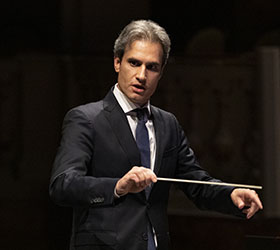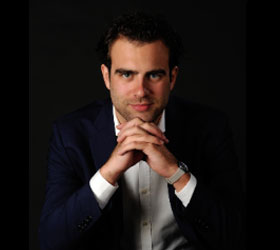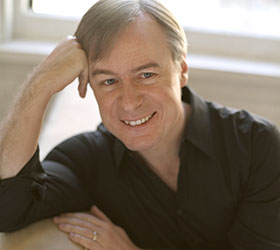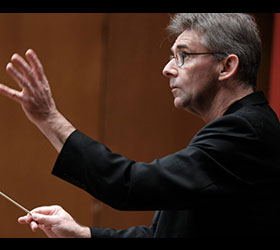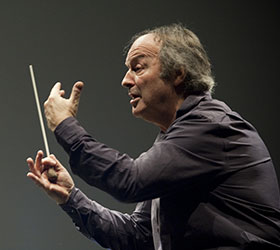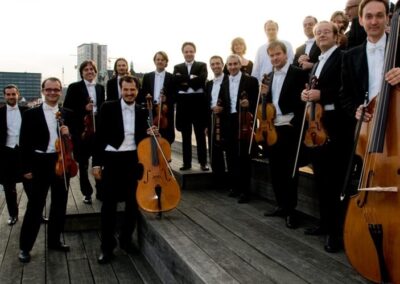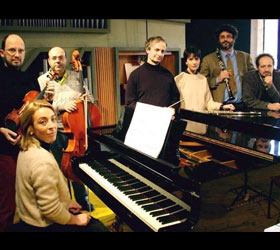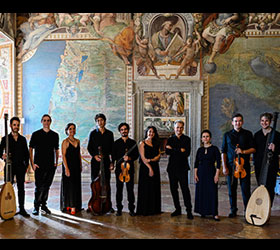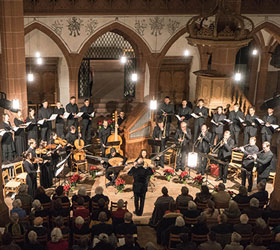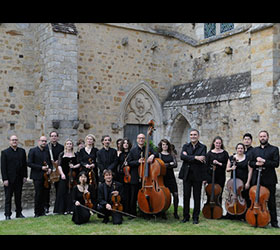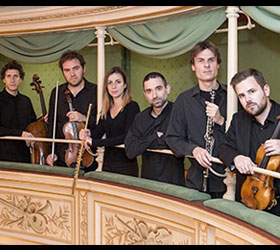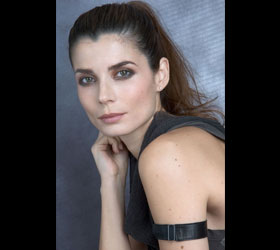Mario Caroli started the flute at the age of 14 and he got his soloist diploma at the age of 19. He was awarded, when he was 22 years old, the “Kranichsteiner Musikpreis” at Darmstadt. He has since enjoyed a highly successful solo career as one of the most remarkable flutists of his generation. The conception of his programs and his wide repertoire show an absolute authentic and personal approach of the profession. In his concerts he combines works by Marin Marais and Brian Ferneyhough. There are no barriers between the different stylistic areas for him and he refuses to be seen as a “specialist” in limited repertoire genres. Mario Caroli is an artist able to play a classical concerto as well as the most complex contemporary piece with the same vitality and virtuosity. It is maybe also due to this reason if his public appareances receive always such a great success. His debut recital at Amsterdam Concertgebouw received a standing ovation. At the occasion of one of his recitals at the Société Philharmonique of Bruxelles, a critic remarked: “the audience was literally amazed by his technique, his power, his poetry and his musicality”, whereas his first recital at the Théâtre du Châtelet in Paris was called to be “of an amazing evocative power”.
Mario Caroli appears regularly in the greatest concert halls of the world, including the Philharmonic Halls of Berlin and Cologne, the Concertgebouw in Amsterdam, the Herkulessaal in Munich, the Vienna Konzerthaus, the Royal Festival Hall in London, the Théâtre du Châtelet and the Opéra Garnier in Paris, the New York Lincoln Centre (in the cycle of “Great Performers”), Suntory Hall, Oji Hall, Opera City House of Tokyo and the Palais des Beaux Arts in Bruxelles.
He plays flute concertos – from Vivaldi to Sciarrino, as well as Mercadante, Ibert or Jolivet – with the Italian Radio Symphony Orchestra, the Philharmonia Orchestra of London, the National Orchestra of Belgium, the Orchestra of WDR, the orchestra of SWR, the Bayerische Rundfunk, the Iceland National Symphony Orchestra, the Tokyo Philharmonic, the Tokyo Sinfonietta, the Orchestras of the Stuttgart, Rouen and Cagliari Opera Houses. He has been a soloist also with Les Percussions de Strasbourg, the Ensemble Contrechamps of Geneva, the Algoritmo Ensemble of Rome the Neue Vocalsolisten Stuttgart, the Schola Heidelberg with conductors like Pierre Boulez, Peter Eötvös, Heinz Holliger, Lothar Koenigs, Christian Mandeal, Kazushi Ono, Pascal Rophé, Oswald Sallaberger.
Mario Caroli obtained a university degree in philosophy (summa cum laude, with a thesis on Nietzsche’s “Der Antichrist”) and has a passion for poetry, cinema and psychology. This cultural interest supports his attempts to renew and revitalise the traditional views on the instrument and its repertoire. Going beyond the great canon of the historical flute repertoire, Mario Caroli became a preferred soloist for some of the greatest composers of today. He is the only contemporary flutist having performed on monographic concerts the complete works for the flute by Sciarrino, Ferneyhough and Jolivet. Interpretations of a stunning virtuosity, fantasy and energy which made critics call him a “phenomenon”.
He dedicated to transcriptions and adjustements for flute of early, classical and romantic works. He performed very rare and monumental scores: “Cantare con silenzio” by Sciarrino, in the “Flute Concerto” by Feldman, in Nono’s “Prometeo”, in the complete cycle of “Carceri d’invenzione” by Ferneyhough and Boulez’ “…Explosante-fixe…”; main role in Maderna’s “Hyperion” as well as chamber music player in the Feldman’s trio “For Philip Guston” (five hours long), in “El Cimarron” by Henze or in “Marteau sans maître” by Boulez.
His scenic appearance was often a subject of critics: “Tall and elegant, he seems to be a figure by El Greco, with a total mastery of his instrument” (Muzsika, Budapest). Others wrote: “He played fairly rocking out in ecstasy, and one could only look in an incredulous stupor” (Musicweb international, New York), “A musical gesture elegant as well as sensual, he gave a concert which doesn’t allow any objection” (Diario Basco, San Sebastian).
His discography contains approximately twenty CDs. The recent recordings of works for flute by Jolivet (“one of the best performances heard in recent months – maybe even in a few years”, American Record Guide) and by Sciarrino were received with the highest possible acclaim: “Recommandé” (Répertoire), “Coup de Coeur de l’Académie Charles Cros”, “A!” (Anaclase), “Eccezionale!” (Musica), “Best recording of the year” (Musicweb international), “Best CD of the month” (Amadeus and CD Classics). His recordings, concerts and interviews are broadcasted by radio and TV stations.
Mario Caroli has given masterclasses and worked as an artist in residence at prestigious institutions like Harvard University (where he was invited to hold the FROMM-residency between 2007 and 2008), Toho College (Tokyo), the Sibelius Academy (Helsinki), the Centre Acanthes (Paris, Metz) or the Music Universities of Paris, Geneva, Lugano, Karlsruhe and Leipzig. From 2002 he was invited to teach the ‘cycle de perfectionnement’ at the Conservatoire National of Strasburg, the city where he now lives. For his concerts, Mario does alternate a Muramatsu gold flute and Miyazawa platinum flute.
In addition to his solo career, Mario has worked often, as an interpreter on stage, with Trisha Brown dance company. He did also bring his flute in schools, factories, hospitals, nursing homes and even in prisons.
The great flutist Manuela Wiesler – who deeply influenced him – wrote the following comment on his interpretations of the music by Jolivet: “I was very touched by your playing. You reach the core of the music, that innermost centre of creation, where other players are content to show a nice surface. My favourite is, of course “Ascèses” – what calm, what honesty – pure bliss!”. The composer György Kurtág called him “one of the best interpreters I’ve never met”, and Sciarrino in the booklet of the recording of the complete works for solo flute, wrote: “This young Paganini of the flute is an example for many famous musicians. Possessing a technique without limits, he doesn’t content himself with the usual repertoire. When Mario Caroli plays, it is nothing less then love which transforms the self and the surroundings of the self through the music”.
